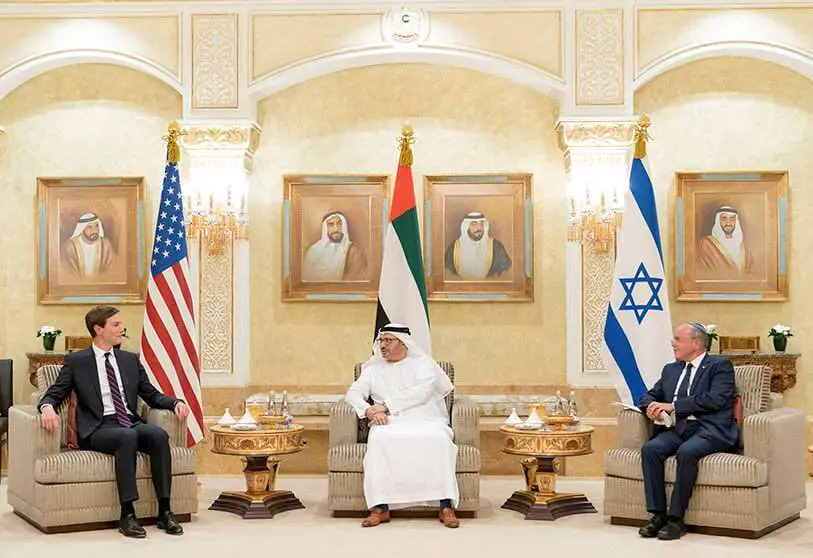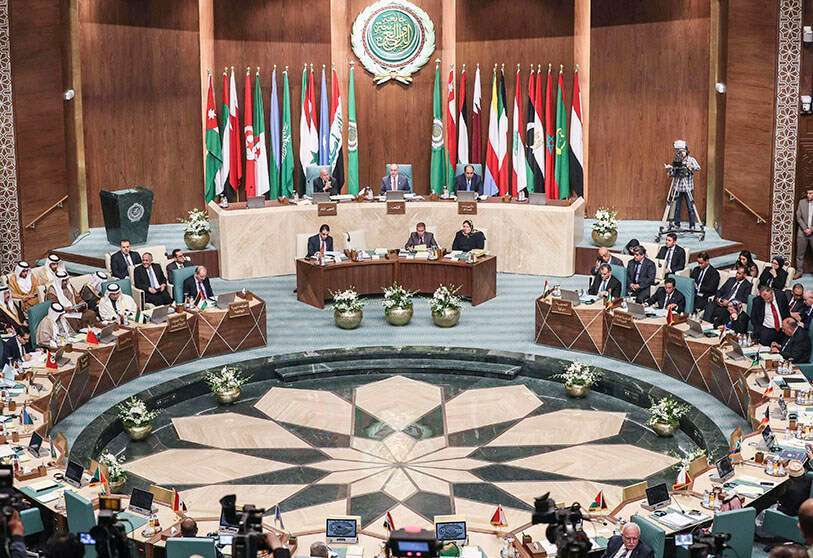The agreement between the Emirates and Israel will not leave Palestine behind

The Middle East takes a geostrategic turn following news of the normalisation of relations between the United Arab Emirates (UAE) and Israel. Contacts began with a phone call, then an exchange of medical and defence material, then a commercial flight (which had the agreement of Saudi Arabia to fly over its territory) and, in five days' time, they will sign their diplomatic agreement at the White House.
Comments of concern and accusations of "treason" against the Palestinian people have flown around the globe. Therefore, the minister of state and foreign affairs of the United Arab Emirates, Anwar Mohammed Gargash, has made it clear that making contact is not going to ignore the situation of the Palestinians.
The signing of the agreement to normalise relations between the two countries includes a clause specifying that "Israel must halt the annexation of Palestinian land". The emirate government considers this an "important achievement and a step towards peace" and, in order to reinforce the idea in the face of the millions of international sceptics, has added that "the rights of the Palestinian people are inalienable" and that there is a real opportunity to reactivate peace efforts and initiatives with respect to the Arab-Israeli conflict.
Minister Gargash furthermore pointed out that the Emirates maintains a firm stance and supports the solution of the conflict with East Jerusalem as the capital of a future independent Palestinian state based on the 1967 borders.
The talks have already begun, the hotels in Abu Dhabi are going to start including kosher food on their menus and the geopolitical balance is recalculating its positions. The Emirates thus becomes the third Arab country to normalise relations with Israel, after Jordan in 1994 and Egypt, which was the first to resume contact in 1979 following the Camp David peace agreements.
Last Wednesday the Arab League, made up of the Arab countries of North Africa and the Middle East, held a meeting to take the temperature of the MENA area for the last quarter of the year.

During the meeting, the idea that the Emirates should continue to support the establishment of a Palestinian state in accordance with the borders that were present before the Six-Day War was stressed.
Turning to other matters, minister Gargash denounced during the meeting the growing foreign interference in Arab affairs. In particular, he drew attention to the policies of Turkey, "which has been threatening the sovereignty, security and stability of the states in the region", the Emirati representative stressed, as well as criticising its antagonistic role in the Mediterranean Sea.
On the other hand, referring to the rivalries with Iran, the Emirates condemned Teheran's support for armed militias and terrorist groups in some Arab states. Mr Gargash added that the clerical regime is threatening the security of maritime traffic in the Gulf and urged the Islamic Republic to respect the rules of good neighbourliness. It is important to remember that Iran, despite being a country geographically located in the Middle East, does not belong to the Arab League as its history has Persian roots, a situation that explains the historical rivalry in the region.
The Emirates and Iran, like most of the Gulf countries except Qatar, do not have direct relations. Furthermore, they have shared a territorial dispute since 1971 in the Straits of Hormuz. Minister Gargash has asked to address the issue of the three Emirati islands of Greater and Lesser Tunbs and Abu Musa occupied by Iran, and has requested direct negotiations or arbitration by the International Court of Justice to settle the problem.
As for the crisis in Yemen, Gargash reiterated his support for the Saudi coalition in its fight against the Hutids and called on all parties to implement the provisions of the Riyadh Agreement.
On September 15 the signing of the "Treaty of Abraham" will take place in the White House. This is what they have called it in reference to the biblical character who divests himself of all his possessions, including his family, in order to fulfil the word of God. In the story, God asks him to sacrifice his son Isaac, although at the last moment he avoids it by considering that he has passed the test of faith.
President Trump will host a historic ceremony attended by Israeli Prime Minister Benjamin Netanyahu and the Emirate's Foreign Minister Abdullah bin Zayed al-Nahyan. The signing of the agreement will definitively formalise the bilateral ties between the Emirates and Israel. The White House has expressed its hope that the pact will open the door to other diplomatic agreements between Israel and other Arab countries.
Mr Trump wants to promote the treaty as much as possible now that he is in the middle of the campaign for the US elections on 3 November. Talks of this kind in the Middle East, which are far removed from the United States' direct interests, have nominated him for the controversial Nobel Peace Prize.
The American president hopes that more Arab countries will follow the example of the Emirates, but the geopolitical landscape and the weight of religious support continue to be a major bloc that is difficult to change.








